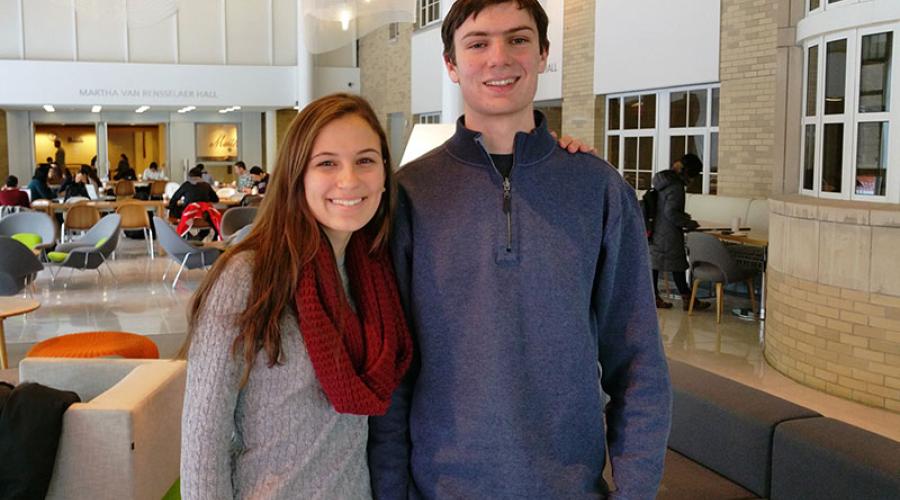
Learning Through Listening
On April 18, Brian Meersma ’18 will receive the Marion Huber Learning Through Listening Award from Learning Ally, a nonprofit organization serving individuals with visual and learning disabilities.
Another Cornell Class of 2018 member, Mara Schein of the College of Human Ecology, will also be honored with a Huber Award in Washington, D.C.
Both students have dyslexia, defined by the Mayo Clinic as “a learning disorder characterized by difficulty reading due to problems identifying speech sounds and learning how they relate to letters and words.”
In an interview this week, Meersma said that instead of reading with just his eyes, he uses audio and text-to-speech technologies to learn through listening.
“I get my textbooks from either Learning Ally or other services including Bookshare, and Cornell Disability Services provides me with accessible digital copies, so I’m able to listen to books or course material and understand that way,” said Meersma, a Dean’s List student.
“For written exams, professors give me a PDF copy of the exam, and I borrow a computer from Student Disability Services with special software on it that reads the questions to me. I can fill out the prelim or quiz with the software and have it read back my answers.”
Meersma does not use assistive technology to only benefit himself. Using his experiences as a starting point, he created an assistive technology blog that provides information to others with learning disabilities. On the blog, he shares his favorite computer programs and reviews text recognition and communication apps.
When asked about juggling schoolwork and other work, Meersma responds “I try to update my blog as much as I can around my classes and different assignments. It’s definitely continuing to be used as a resource – in March, I had more views than in any other month since I started the blog.”
A resident of Princeton Junction, N.J., Meersma facilitated a summer reading club for students with dyslexia, and is frequently approached to give presentations on assistive technology for students with learning differences. He also advocates for gifted and special education issues, aiming to improve support and access for students with disabilities.
“Recently, there were three bills passed in New Jersey that I helped advocate for,” Meersma recalls. “Decoding Dyslexia, a group that I’m a part of, has been advocating for increasing training for teachers of students who have trouble reading, increasing early screening so that kids with dyslexia are identified early and can get the remediation they need, and getting the definition of dyslexia into state education codes.”
The Marion Huber Award, begun in 1991, seeks to recognize students who have made use of accessible educational content and assistive technology for their academic achievements, service to others and leadership qualities.
Meersma has been recognized through other awards including the Governor’s Environmental Excellence Award, the Yes I Can! Award from the Council for Exceptional Children and the Anne and Matt Harbison Scholarship.